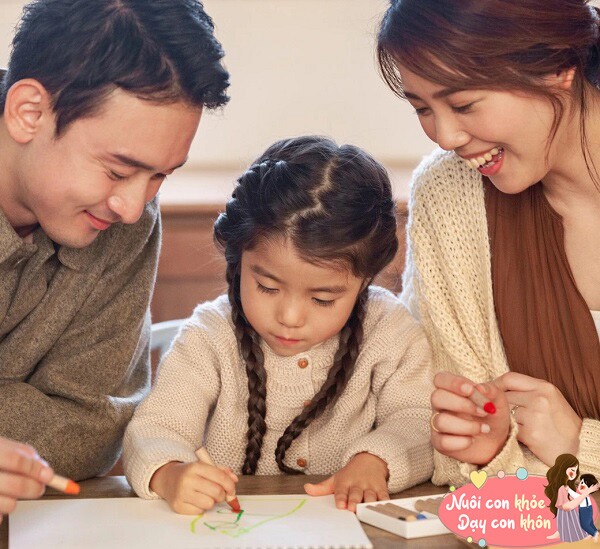Parents with high EQ often help children develop emotionally, providing a positive orientation towards a brighter future, focusing primarily on three aspects.


Foster Self-Tolerance in Children
Many parents value the cultivation of tolerance as it significantly impacts their children’s lives. Tolerance teaches children to accept and empathize with themselves and others.
In psychology, tolerance refers to the ability to control one’s emotions. This includes not overreacting to challenging situations and not being easily hurt by others’ words or actions. Tolerance helps children remain calm and develop a multi-perspective view of issues.
How important is tolerance? Its strength can be said to be related to the quality of life.

Foster self-tolerance in children.
Children with tolerance tend to face challenges with more confidence. They understand that life doesn’t always go according to plan and that surprises can happen at any moment.
Life is full of “surprises,” and children need to be able to accept and tolerate them optimistically. Parents cannot always shield their children from difficulties and failures. Instead, they should foster tolerance so children can face life’s challenges.

Cultivate a Love for Learning
Curiosity about knowledge and a proactive learning ability are vital for children. Curiosity drives children to explore the world, motivating them to develop independent thinking and problem-solving skills.
With curiosity, children won’t merely absorb information passively. Instead, they will actively seek to understand, ask questions, and find answers. This lays the foundation for critical thinking and a lifelong learning mindset.
When children take ownership of their learning, they become active learners who don’t just wait to be taught but proactively seek out new knowledge and experiences.

Cultivate a love for learning.
Children will learn to set learning goals, find suitable study methods, and evaluate their progress. This learning habit is formed through daily experiences, such as reading, participating in extracurricular activities, and discussing topics of interest with friends.
Moreover, children with a positive learning habit can easily adapt to life’s changes and challenges. Proactive learning also boosts children’s confidence and helps them overcome difficulties to achieve their goals.

Develop Children’s Ability to Recognize Happiness
Individuals who lack happiness awareness may struggle to find genuine joy, even with wealth and high social status.
Research shows a strong link between perceived happiness and an individual’s mental health and life satisfaction.
According to surveys, about 70% of people who experience long-term depression have a low perception of happiness.
Therefore, parents should nurture children’s awareness of happiness.
The ability to recognize happiness is not innate but needs to be cultivated and improved through experiences.
As Montessori said: “Children have developing bodies and minds, and this is the most important stage of their lives.”
During this stage, children are more likely to emulate positive behaviors if their parents are optimistic and positive.

Develop children’s ability to recognize happiness.
A study of 500 families found that children raised by optimistic and positive parents had a 30% higher happiness awareness than those from other families.
Thus, parents should guide children to discover happiness in simple daily experiences, such as cooking together, walking in the park, or spending quality time talking and sharing as a family.
These moments help children realize that happiness is found in the little things. As they understand that joy can be discovered all around them, they develop a more positive outlook on life.
Children raised in a loving and caring environment build a strong foundation for their psychological and social development. This love is not just physical care but also involves listening, understanding, and sharing emotions. When children feel loved, they tend to be more confident, expressive, and eager to explore the world.




































